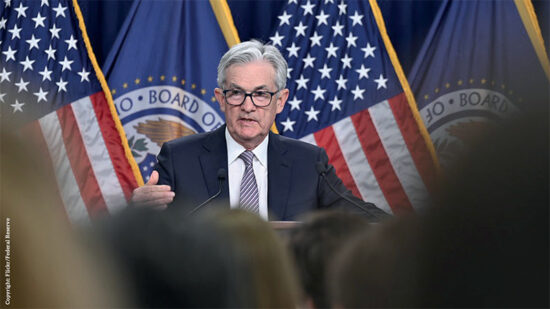Matt, explain which are your priority markets in terms of your specific brief?
Europe obviously presents a multitude of opportunities depending on which way you look at it. For us, the UK obviously sits out as the number one core market. Today, depending on what you read, we are the number three or number four retail investment manager in the UK market. It’s a position that we have built up significantly over the last 10 years or so.
Our European headquarters are based in London. We own some significant asset managers here: Newton, Insight, and Walter Scott, and Alcentra.
No matter where you go in Europe, domestic managers still seem to be preferred for a number of obvious reasons.
Interestingly enough, though, if you look back, we prioritised a lot of our resources in the UK, and perhaps failed to suitably invest in other European markets, which meant that we were over-reliant on UK performance.
Over the past few years we have been deepening our resources in other European markets where we see an opportunity. We have grown our team in Switzerland. We are growing our team in Italy, and we expect a couple more recruits to hit that team over the next couple of months. We have invested resources in the Netherlands, and we will continue to build that business out. We have invested in the Nordics. Those areas are priority number one for Europe.
In Germany, we bought out the joint venture we had with WestLB relatively recently, and we have been doing quite a lot of work there to refocus the distribution efforts.
So you should expect to see some news from us in Germany over the coming months, in terms of what we are doing out there and how we are going to increase our footprint.
In other markets we have a presence. I’m not saying these are not important to us, I’m just saying that we are probably right-sized. We have been on the ground in Spain for over a decade and we do very well there, we are well-respected, and there is a bit of a resurgence in sales right now.
We also have a business based out of Paris, where we cover France, Belgium, Luxembourg, and interestingly enough, Israel, which we started doing business in about a year and a half ago, because we got a particular opportunity. Mainly institutional, insurance companies, but yes, a phenomenal business for us.
How big is BNY Mellon and how does your job role sit within the organisation?
We are the world’s largest multi-boutique today. The last survey I saw from PMI had us at the fifth largest asset manager in the world, but we are about $1.6trn of assets under management as a multi-boutique, so it clearly makes us the largest multi boutique manager.
We provide services from the centre that don’t impact on the investment business itself. So IT, finance, and legal services can be got from the centre.
What we also have is a global distribution business, which is split into three regions from an infrastructure perspective, and four from a sales leadership perspective,
So generally speaking, in most instances, all of those businesses would work with us for mutual funds, because we can package those at the centre and run ACDs and management companies and do all that cost effectively.
There is obviously a lot of machinery in the background, to churn out all the marketing materials in the local language.
I run the European part of that central distribution business, and within that is included all the mutual fund wrapping and manufacturing, the marketing machine behind it, the sales force, and everything that is required to run that business.
What about the Middle East and the way you have upped your position there?
My colleague in the Middle East, Imad Abukhal, head of Middle East and Africa for investment management, who was appointed in 2014, uses my infrastructure here in London.
I also chair the EMEA executive committee, and Imad is a member of that, but his sales strategy is very different to my sales strategy. The Middle East for us is already a big business, and we think could be much bigger.
We are currently top five, and I think it’s about number two again, if you look at PMI, in positioning as a manager of sovereign assets. Obviously a big chunk of sovereign money sits in the Middle East. We have had a presence and done business in the Middle East for a number of years, but like many markets, historically, we had often played quite tactically, with a person, or two if you were lucky, on the ground.
The Middle East for us is strategically incredibly important, which is why we have brought Imad on board.
Imad has already taken on another new recruit, and has a couple of other people there. We are first and foremost building out our presence for the sovereign wealth sector in the Middle East. As we gain more traction we will look to deepen that in terms of financial institutions. The question is when do we get to that. Where we have global financial relationships with global financial institutions, Imad has helped facilitate some of the conversations out there.
There is a big relationship we need to do more with, we’re absolutely not pushing them away. It’s about prioritisation of resources and our strategy right now.
How do you distribute in Europe?
If we take the institutional business we have a big sovereign wealth group and we cover sovereigns very well. Put that off to one side.
There are some markets where there is an obvious institutional opportunity, whether it be the Netherlands or the UK or Germany or the Nordics, and we will have distribution businesses or distribution specialists that cover those channels.
If you then talk wider funds distribution, clearly banks are a massive part of how we distribute across Europe.
This year we have done two sub-advised mandates with a relatively global bank, with a private wealth division that operates in multiple jurisdictions, so we are sub-advising their funds. We have four or five mutual funds on their select distribution list. They have taken this product and used it for their high net worth channel.
The wealth bit for us is a really interesting area to work in, because you tend to find multiple opportunities and find businesses that are already focused on the end investment expertise, and the end investment products, and we obviously have quite a breadth.
Which products are selling well at the moment?
In the UK we have seen more demand for multi-asset products and we have built a very strong franchise through Newton with the real return, outcome-driven multi-asset product. We have also seen demand for Insight’s absolute return multi-asset product, out of the Absolute Insight Fund.
More institutionally, Insight also has a product called the Broad Opportunities Fund, which is a multi-asset product, which has done incredibly well institutionally, and we are beginning to see demand across the intermediary area.
We are in the midst of reviewing our multi-asset capability and our offering in the UK, and we will certainly be in the market next year with some interesting things to complement that.
Equity income seems to still be consistently an area that is bought in the UK market, for good reason. As our population gets older, equity income is an incredibly useful component solution.
Newton have been fore founders in that area, and the Asian Income Fund is one of the first Asian dividend funds. We continue to see a lot of demand there.
One area that we have not done particularly well in over the last few years has been UK equity.
Newton has slowly made some changes to their UK equity team over the last couple of years that have been well documented, but if you look at the UK Opportunities Fund and the Higher Income Fund, you will see that the performance in those products has vastly improved over the last couple of years, and is beginning to look incredibly competitive.
In southern Europe there is a lot of concern about the amount of duration risk that they are holding in fixed income portfolios. A long short bond strategy in our Dublin range has raised £4-5bn over the last couple of years, which is the sort of product we are seeing demand for.
Equally, we have products that are a little bit more long in nature, but that may use derivatives – for protection – and have a more flexible approach, which we are seeing demand for too, and they are easier to understand.
If you look at the Global Dynamic Bond from Newton, a UK product which now has a Dublin version, we are going to see a lot more interest offshore.
We are beginning to see demand from southern Europe, from Ireland, and from some of our global distributors.
We have recently launched a Dublin version of a US strategy from Standish, which is our big Bostonbased fixed-income boutique, called the Global Opportunistic Bond, and that is a full multi-asset, go-anywhere bond product.
The other area that is in demand there and generally across Europe is absolute return UCITS in a variety of forms, and so you are seeing people happy to tip-toe out of the fixed income area into the lower volatility end of absolute return UCITS. I think the last study we got from MondoHedge places us now as the third largest absolute return UCITS player in Europe.
In June we launched the Absolute Insight multi-strategy fund into our Dublin range, and we have raised about €120m for day one, from clients in six countries. We did not need to seed that product at all, which was wonderful.
I would hope that we will continue to complement that range over the next 12 months.








